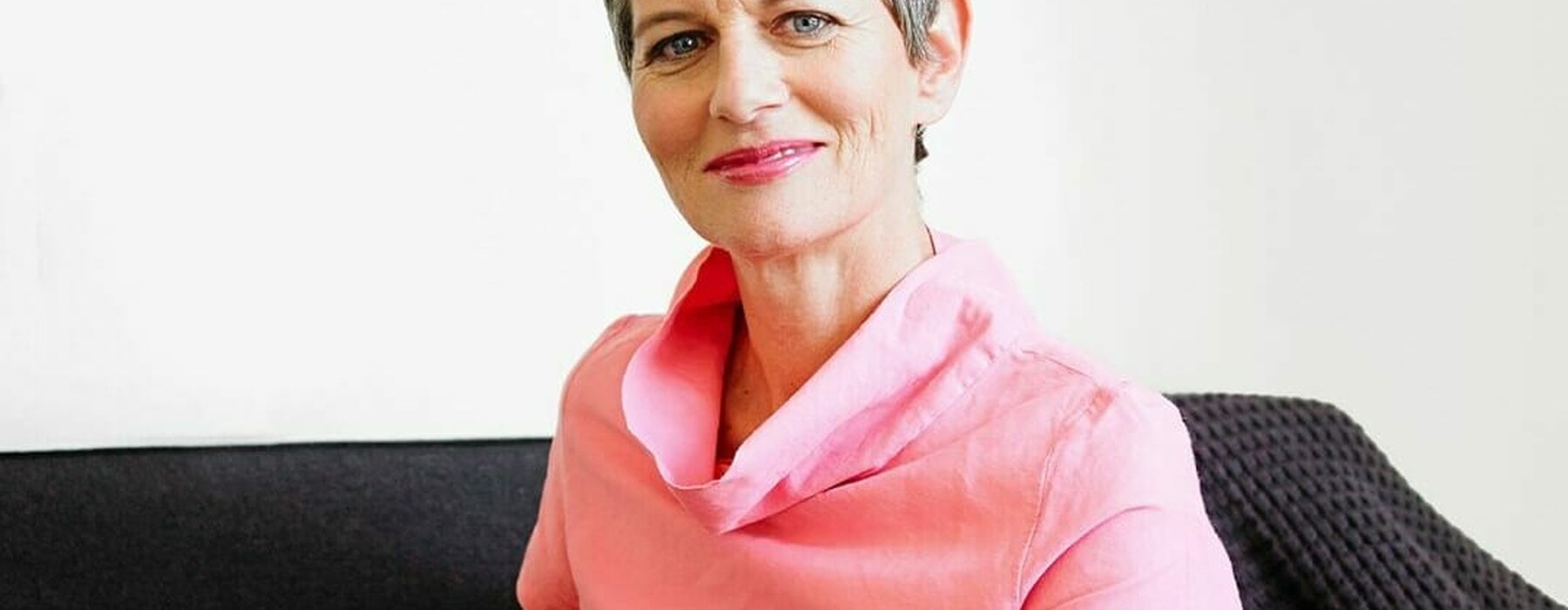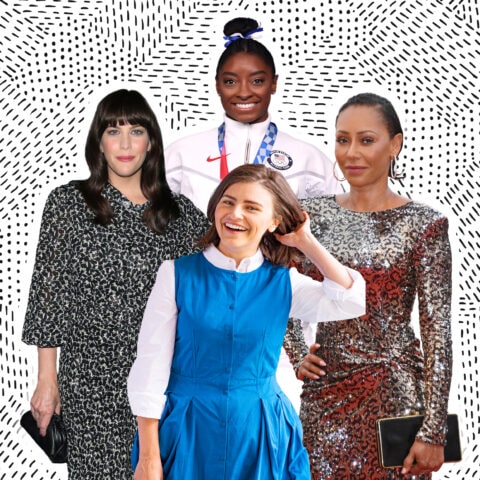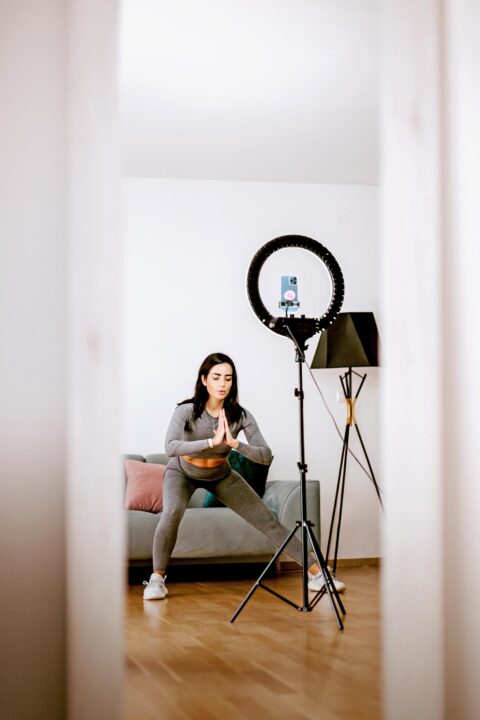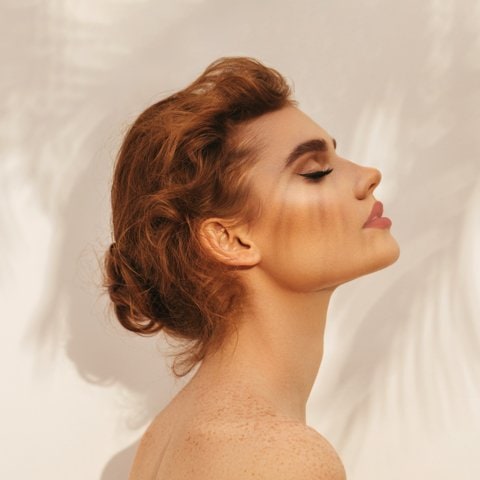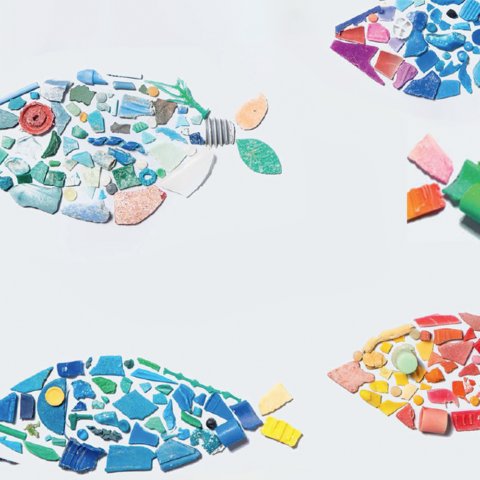It’s something all women go through, so why do we know so little about it? Sarah Connor’s Menopause Over Martinis project is helping to open the conversation about how changing hormones affect our lives. Sarah Catherall reports.
About two years ago, Sarah Connor was driving to her Wellington home when her head suddenly felt like it was on fire. “It was as though it was melting from the inside out,” she recalls. “I felt faint and my vision started to blur. Luckily, I could pull over safely and wasn’t far from home.”
Over the next months, Sarah, who was 46 at the time, developed a range of inexplicable symptoms. The writer and communications specialist went from being a person who had never suffered from depression or anxiety, to one who was often crippled by both. She suffered from panic attacks, insomnia, a low and depressed mood, nausea, faintness, achy hip joints, itchy skin and a metallic taste in her mouth.
The mother of two was afraid of what was happening to her. She’d randomly burst into tears, didn’t feel like eating and was constantly tired. She’d always been a good sleeper and had been known as the one who went to bed early and slept soundly all night, but now she either struggled to nod off or would wake a few hours later, unable to get back to sleep.
One night, Sarah went to bed with abdominal pains and ended up in A&E. A few weeks later, she experienced tingly fingers and shortness of breath. “I thought I was having a heart attack,” she says. “Actually, it was a panic attack, but I thought I was going to die.”
Sarah had started to suffer a cocktail of symptoms brought on by the hormonal swings of perimenopause (the time before menopause). An estimated 20% of women have a miserable time at this life stage and Sarah was one of those. In April 2019, after visiting a menopause clinic, she started hormone replacement therapy (HRT), and over the following months, she started to feel more like her old self.
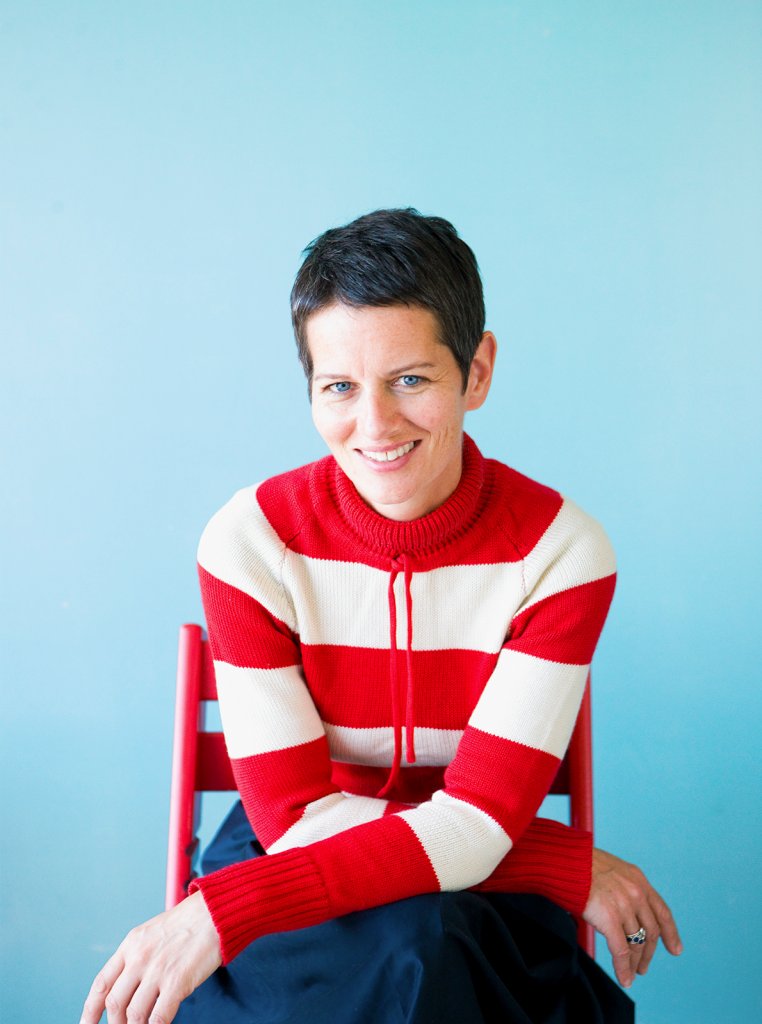
Her journey prompted her to want to share her experiences with other women across generations, so they could learn from each other. Inspired by two dinner events, Death Over Dinner and The Jefferson Dinner, she decided to host a get-together for women. That snowballed into a project she names Menopause Over Martinis – a potluck dinner with a difference, at which friends, family and colleagues of all ages come together to discuss what they do or don’t know about perimenopause and menopause or te ruahinetanga.
Sarah smiles. She’s good today, thanks to HRT, which has helped her, although she doesn’t want to be a poster girl for it. She’s also made some fairly sweeping lifestyle changes to cope. She ring-fences her sleep and is careful about not stacking too much into her day.
“If I go out at night, I need to spend half an hour winding down,” she says. “It’s like when you put a baby to bed and you give them a bath first. If I don’t do that, it can take me a long time to get to sleep. I just find I’m more sensitive to everything. Someone said that this stage of life amplifies your personality in some way. I’ve always been a sensitive person, but now things like loud noises can make me irritable. I’ve heard of other women who say they were just really angry and they’ve had this rage running through them.’’
Thinking back to her upbringing in rural Hawke’s Bay, Sarah reflects on being given a standard sexuality booklet as a prepubescent, and being well informed about puberty and later about childbirth. However, as for many women of her generation, the information stopped there, and she didn’t grow up knowing about her mother’s experience of menopause.
A locum GP asked Sarah if her horrendous symptoms might be perimenopause, but she knows from talking to other women that this isn’t a common experience. As part of her desire to encourage better understanding of menopause, she’d love to see posters in GP clinics and letters about menopause sent out to women nearing 40, possibly in the same pack as cervical smear or mammogram reminders.
“What women need is some general information to say, ‘You will go through menopause at some point, so here is some information about it and where you can go for help,’” Sarah says. “Imagine if we had menopause clinics all over New Zealand? It can’t be just about posters. We need phone numbers we can ring. We need consultations with menopause clinics that don’t cost a lot of money. We need a dedicated health system that knows about women’s health.
“Bikini medicine – uterus, ovaries and vagina – is what many doctors think about and what they reference, but oestrogen is in our brain. Hormones are everywhere. They’re not just in a neat little place. We need a health system that’s inclusive and has enough information to make us all feel supported. There’s a really big gap in women’s health services.”
Sophie Jerram, a Wellington-based writer and PhD university student, agrees. Her symptoms began about three years ago, when she says she “wondered what the hell was going on”. “I’d never had anxiety before in my life and then suddenly I was nervous about something new, but it was only retrospectively that I realised it was hormonal stuff,” says Sophie. “I had weight [gain] around my middle, achy knees and joints, and I couldn’t sleep.’’
When she revealed her symptoms to her GP, the doctor had no idea that Sophie was going through perimenopause. “I was hugely disappointed, as it’s an important part of a woman’s life.’’
Sophie attended Sarah’s first Menopause Over Martinis dinner. Sitting around a dinner table with a bunch of other women was enlightening and it gave her hope. “I thought it would be prudish,” she says. “But I heard from women who’ve been through menopause that the world’s your oyster once you’re through it. It was really cool and made me realise that I can share this with my younger friends so it becomes a commonly talked about experience.’’
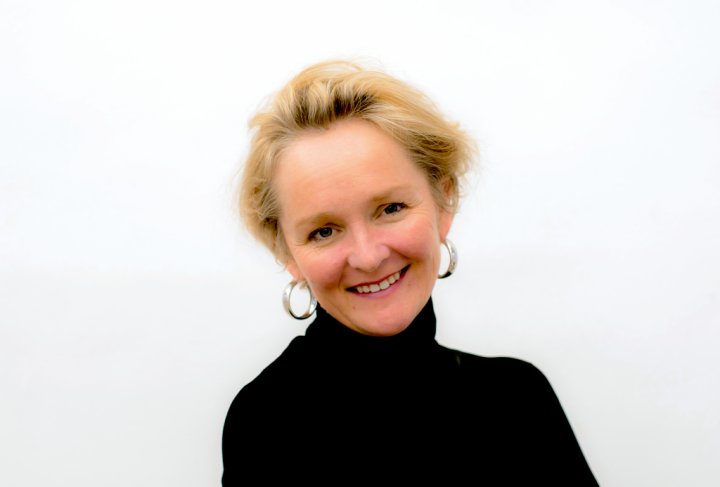
While Sarah found HRT was the solution for her, Sophie found a natural alternative that worked. “I was also struck by the fact that some women are more emotional than others, so they feel menopause more intensely, and that certain remedies don’t suit everyone,” says Sophie. “It really helped to go along to the evening and hear that our symptoms and experiences can be so different.’’
Kirsten Johnstone, a writer and podcast producer, attended Sarah’s second dinner. Even though she still has regular periods, she says, “It’s rare that menopause or women’s health is dinner conversation. Menopause Over Martinis changes that,” tells Kirsten, 42. “Everyone should be aware of the wild rollercoaster that women’s hormones can take them on. There’s no need for it to be taboo or restricted to just women talking about it.”
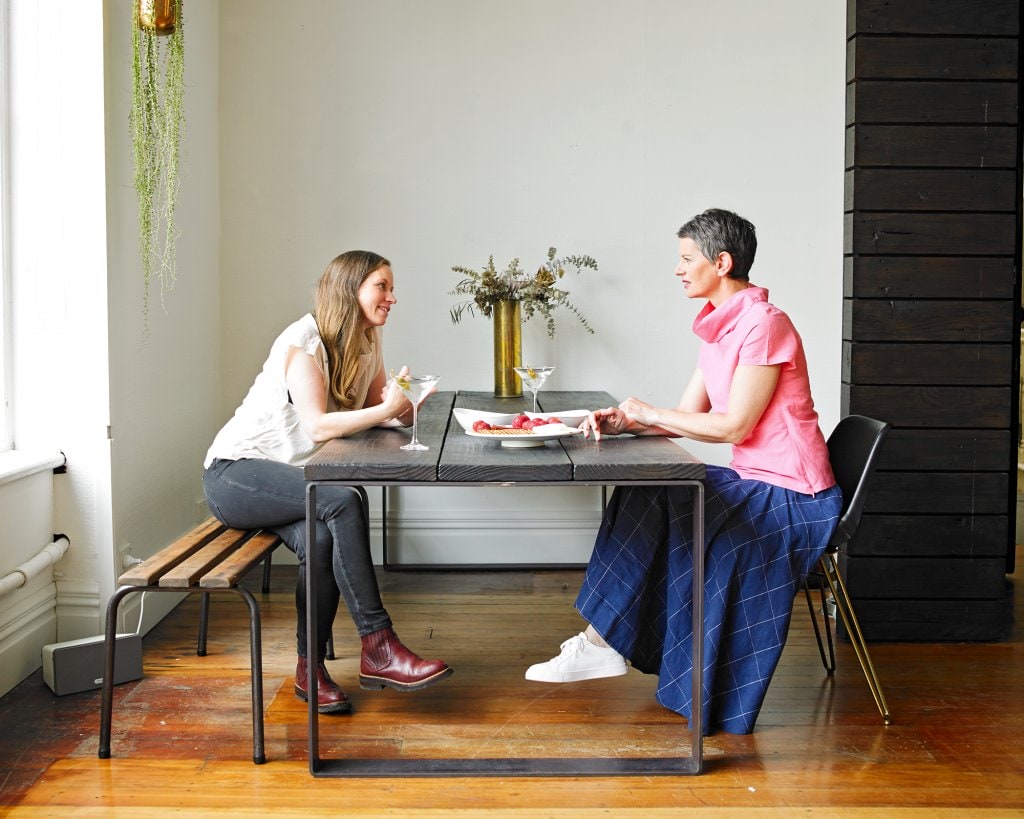
Compelled to help
In her career, Sarah has typically been the softly spoken, strategic and thoughtful one working behind the scenes, writing about people, products and ideas and promoting them. She’s not used to being in the limelight, but she talks about a compulsion to help other women.
“I feel like this has been put on me. I’m not someone who’d usually pursue centre stage. I’m social, but I’ve generally played a support role when it comes to campaigns. I’ve been the publicist who went to Radio New Zealand with an expert to talk about something.’’
Sitting at the very dinner table in her Hataitai home where she’s hosted Menopause Over Martinis events, Sarah, now 48, is on a mission to inform and help women who are either going through or are about to go through one of the biggest changes in their life. She says she was never planning to host more than one dinner party, but her guests loved it so much that they suggested she run another one.
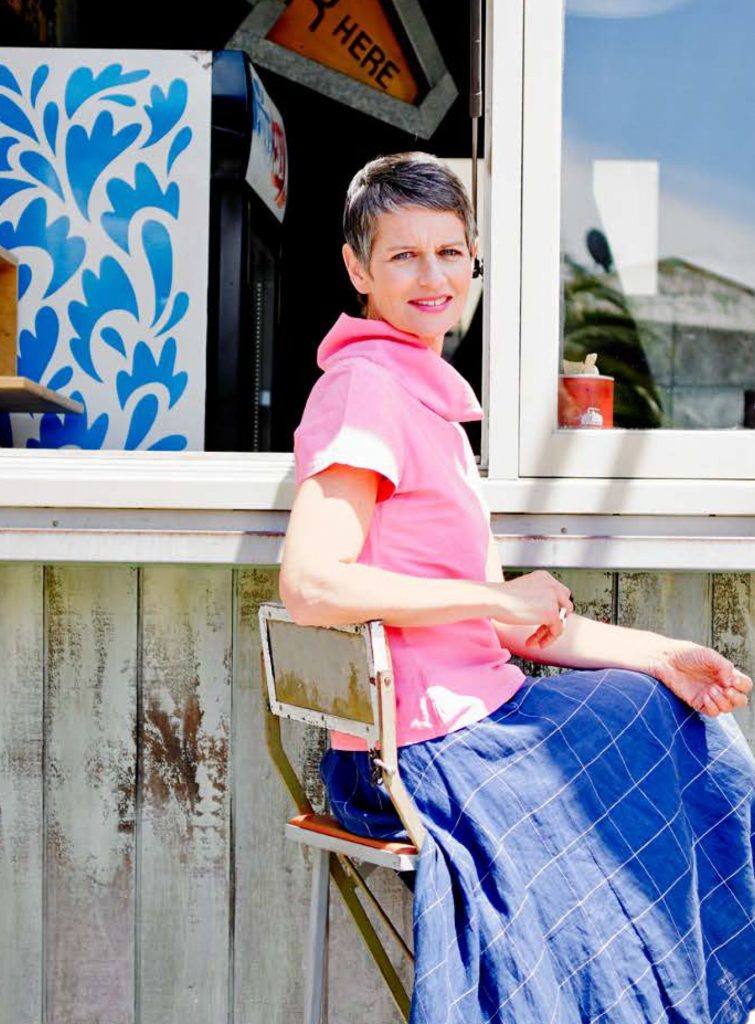
“We talked and laughed and learned so much,” Sarah recalls. “Without an agenda, we covered a lot of ground: the wins and losses, the little-known facts and surprising realities, the potentially manageable and sometimes unmanageable symptoms.’’
Menopause Over Martinis events have already been hosted by women in Wellington and New Plymouth, and more are now happening in Auckland, Sydney and London. Sarah has also started a Facebook page, where she shares all the resources she can find on menopause. “I’m loving the impact,” she says. “I’m hearing from mums at school and people in the supermarket, and it’s been exciting to know that by sharing my story it has made a difference.’’
It’s been exciting to know that by sharing my story it has made a difference
Men are supportive too, including Sarah’s husband, architect Sam Kebbell, who has backed her all the way. “I had one man who rang me and asked if his wife might be going through perimenopause. He wanted to know how he could support her, and was there a number he could ring?” Sarah says. “Then I met a dad who said he’d read my story and what a great and brave thing it is to do, and how important it is that his friends and men like him know how to help.’’
Sarah loves hearing from women in their fifties, sixties and seventies who have been through menopause to get a perspective of life out the other side. “They talk about the postmenopausal zest; about how they have this new energy for trying all sorts of new things and taking on new challenges. That’s why I think it’s important to make these conversations intergenerational.
“Women need a safe place to share their stories and their experiences. I like the idea that women are getting wiser, older and bolder – and that’s inspirational to me.’’
RELATED ARTICLE: What is Perimenopause?
Photos by Nicola Edmonds, Victoria Grimshaw.

